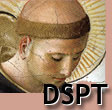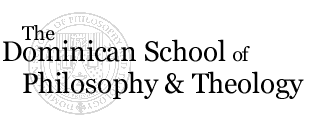

THE MASTER OF DIVINITY DEGREE
The Master of Divinity program invites students who are called to lay or ordained ministry in the Roman Catholic Church to prepare themselves for a life of generous service and fruitful contemplation guided by a love of the Spirit who alone can inspire true wisdom and make the Word of God a living reality. Through practical training grounded in prayer and the communal life of the Church, and needs of people in a diversity of cultural settings, students learn to integrate the Word with contemporary life through preaching, counseling, and leading communities.Academically, the program seeks to form in students:
- a love of Christian tradition as expressed in Scripture and the life of the Church.
- enthusiasm for study and research that will lead to a lifetime of continued personal learning in future years of ministry.
- a broad knowledge of the fundamental areas of biblical, historical, dogmatic, and moral theology, as well as the ability to communicate that knowledge orally and in writing.
- an ability to integrate contemporary theological issues and questions with the tradition of the Catholic Church, especially the theological tradition stemming from Thomas Aquinas.
- a theological understanding of the role of the Magisterium in a pluralistic ecclesial context which often includes divergent views.
- an awareness of other Christian and non-Christian religious traditions within the context of the Graduate Theological Union.
Pastorally, the program seeks to develop in students:
- a sense of ministry rooted in a mature spiritual life of prayer and Christian praxis.
- the ability to integrate personal faith and the study of theology in the context of pastoral ministry.
- a sense of respect and cooperation with Church authority in the exercise of pastoral ministry.
- the ability to promote and foster the spiritual life of the Christian community.
- the ability to preach the Word in a way that integrates theological insight, an awareness of contemporary issues, and a developed pastoral sensitivity.
- the ability to plan and lead communities in celebrations of prayer and liturgy.
- the ability to work collaboratively with clergy and laity in team ministry.
- the ability to counsel individuals and groups with insight and sensitivity.
- a sensitivity to other Christian and non- Christian religious traditions.